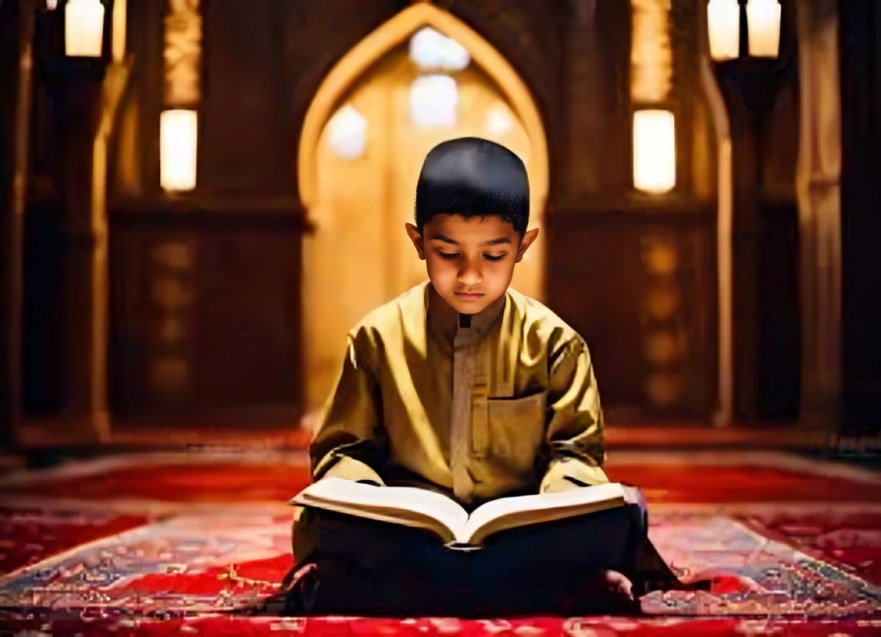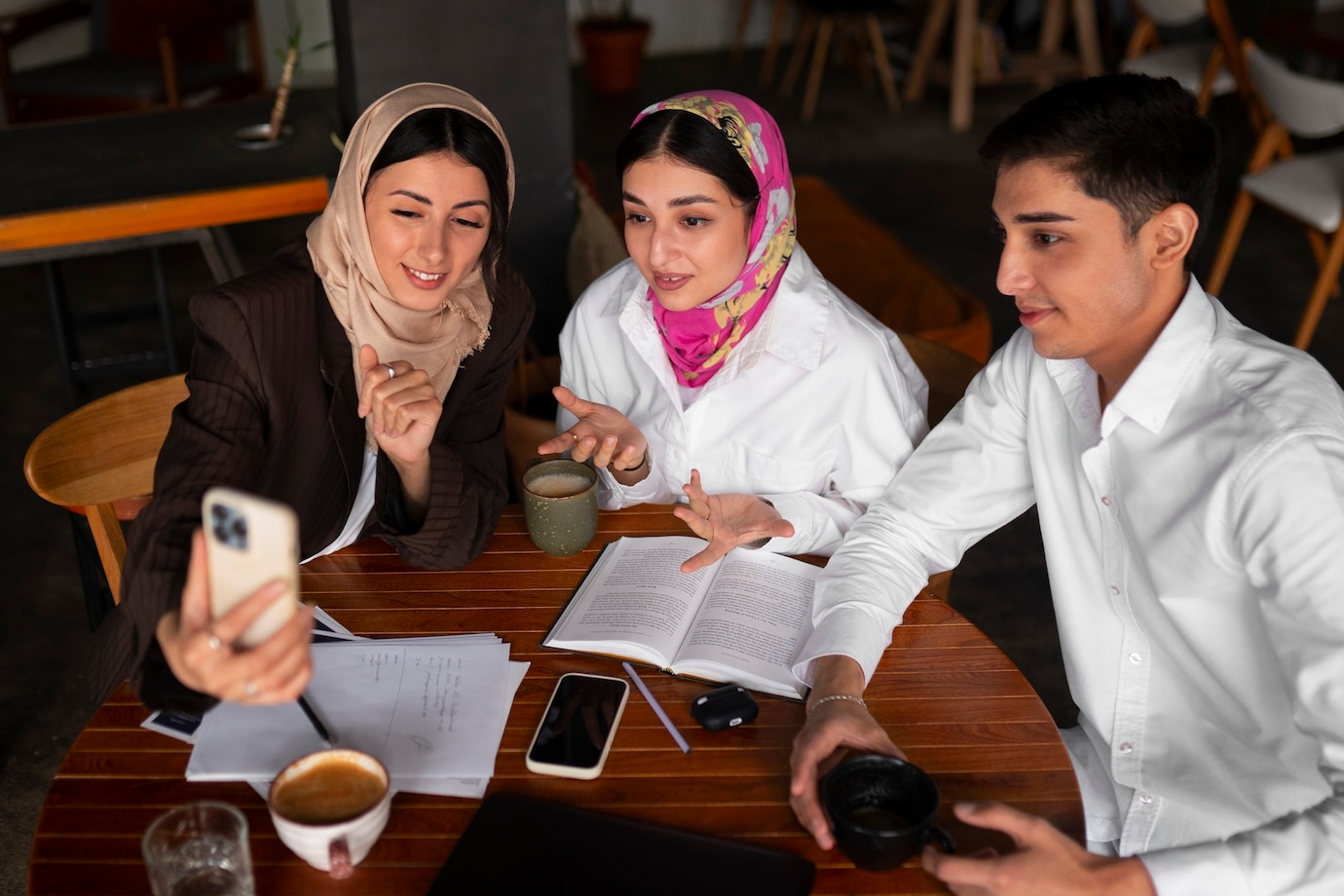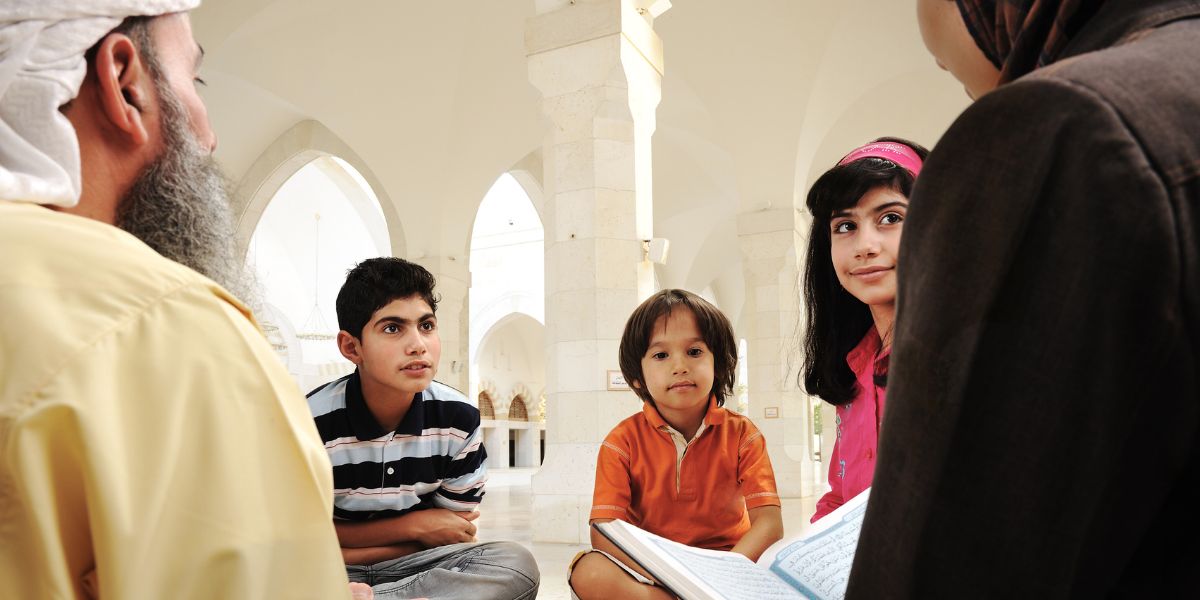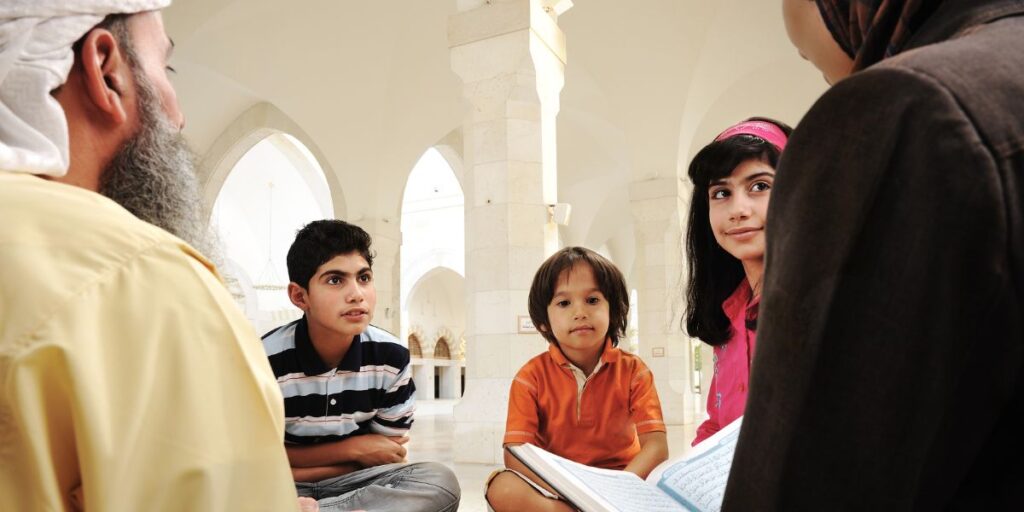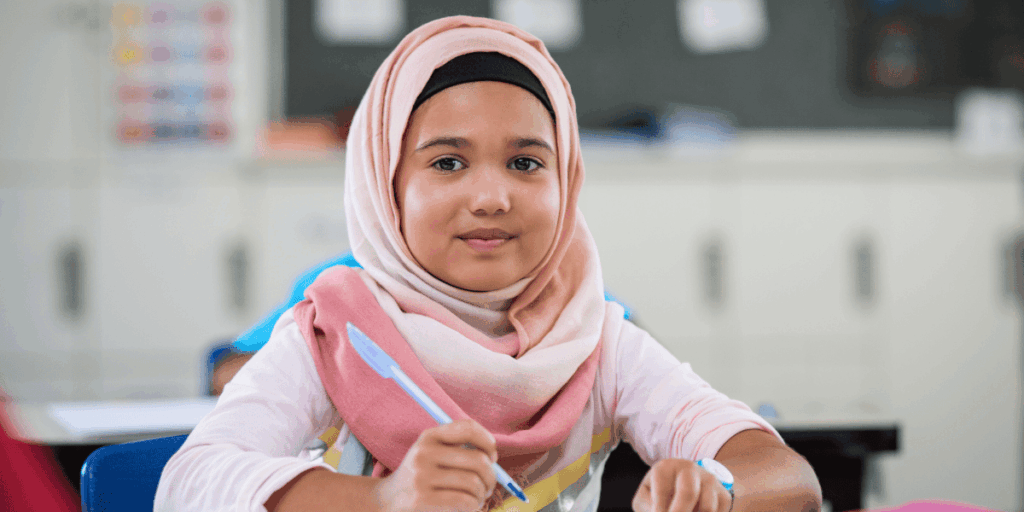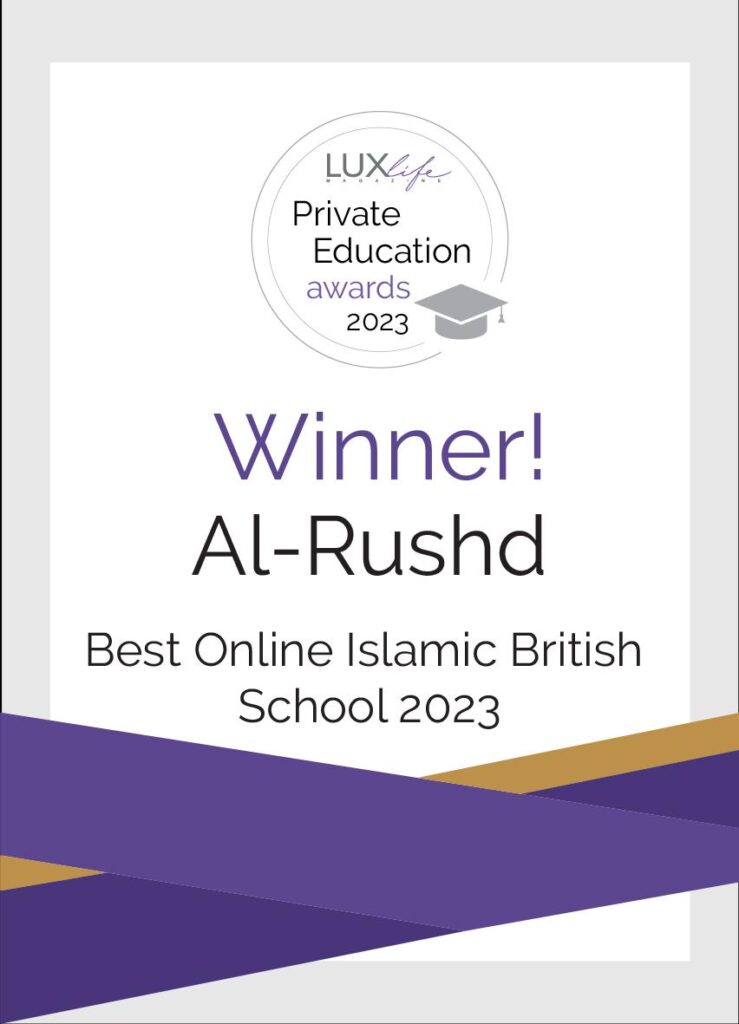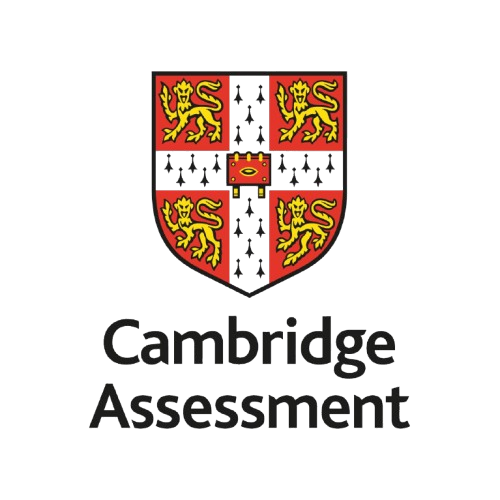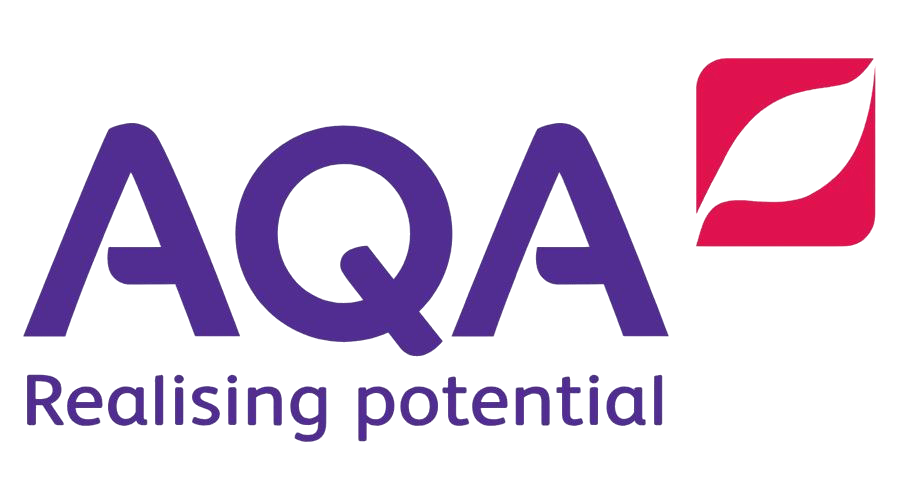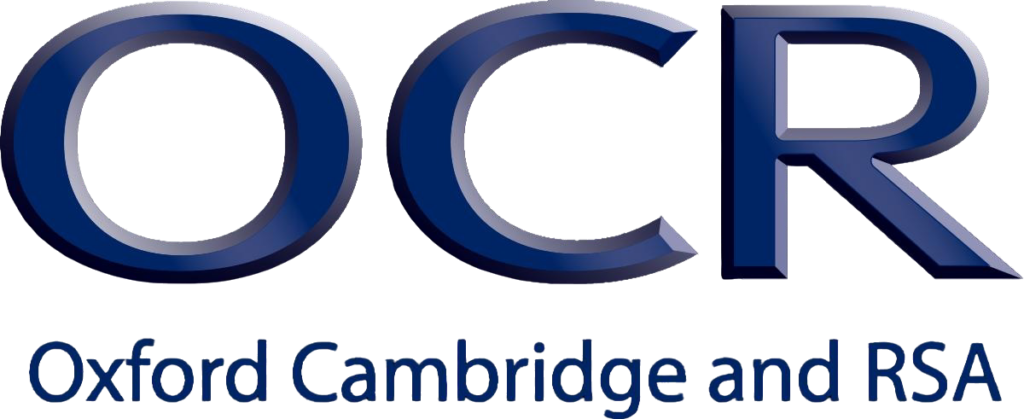For Muslim kids in the UK, the Islamic studies curriculum is a great way to learn about their religion and school. Too often, schools only teach secular subjects and don’t give enough time for faith education. Parents fear that their kids might miss essential lessons about Islam, Allah, and the Prophet ﷺ. This is taken care of by a well-written program.
With live lessons in both Islamic and academic subjects, Al-Rushd Independent Online School shows how to find this balance. This guide discusses the importance of studying Islamic subjects, what makes a good homeschool program, how to teach Muslim subjects in British schools, and provides some valuable questions and answers.
Why Islamic Studies Matter in a British Curriculum
Kids in the UK learn about a lot of different worldviews in their various classrooms, but maybe not enough about their religion. An Islamic studies school will teach you about that. Kids learn about the religion’s main ideas, stories, and traditions. This information makes them feel better about themselves and helps them figure out who they are. For example, children are more likely to be strong and kind when they know about the life of the Prophet.
Islamic studies are also aligned with British values, such as fairness, respect, and community service. For example, reading words from the Quran about honesty or hadiths about justice can help with social and emotional learning goals. It teaches kids how to behave morally, whether they are at home, in school, or online.
The British government has added Islamic subjects to the school curriculum. This helps young Muslims become well-rounded individuals who contribute to society, guided by both their religion and their formal education.
Features of a Good Islamic Studies Homeschool Curriculum
Families in the UK who teach their children can find a good Islamic studies program that combines faith with learning. It gives you spiritual meaning, support, and order. These are the five most important traits:
1. Age-appropriate faith lessons
A good curriculum makes sure that the lessons are right for the level of growth of the kids. Kids in preschool learn the basics of duas and Surahs through songs and stories. Teachings explain the meanings of the Quran, stories about the Prophets, and basic Fiqh through fun activities for kids in primary school. Older students learn more in-depth topics, such as Islamic history and Hadiths.
At every stage, this growth makes sure that ideas stay enjoyable and easy to understand. Group discussions about how to apply values, art projects with themes from the Quran, and role-playing moral dilemmas are some of the things that are done.
2. Daily and Weekly Plans
For homeschooling to work, you need clear goals for each day and each week. A good program has daily lesson plans that cover both religious and nonreligious subjects. It lists maths, English, and science homework, as well as tasks for building character and reciting parts of the Quran. Assessments, review meetings, and project work, such as making a timeline of Prophetic events, are all written in weekly planners.
Parents can change the time for holidays like Ramadan or Eid with models that are easy to change. Detailed guides help parents do less work by giving them clear instructions, lists of resources, and ways to keep track of their child’s growth.
3. Multimedia Resources
With engaging and multimedia tools, kids learn best when they can use more than one sense. There should be time in the curriculum for interactive Arabic apps, animation Seerah stories, and videos of people reading the Quran with Tajweed teachers. Printable art kits, workbooks, and flashcards help kids remember what they’ve learnt. Virtual field trips to places with Islamic history or online lectures by experts give depth.
4. Qualified Tutor Support and Community
Strong curricula offer one-on-one lessons or live meetings where students can talk to skilled Islamic teachers. Most of the time, platforms have boards or parent support groups where families can share tools and ideas. Parents are given more power by regular webinars that cover topics like how to teach, child psychology, and spiritual problems. Virtual Quran battles and debate clubs between homeschools are two examples of community events that bring people together and encourage healthy competition..
5. Evaluation and Feedback Systems
One’s main job is to measure how well people are learning. A good school includes both Islamic studies and fair assessments of secular subjects. There could be written quizzes on Hadith, spoken tests on the Quran, and talks on Seerah projects. Worksheets, timed drills, and practice tests that follow the curriculum for homeschooling in the UK all help with school subjects.
Detailed marking plans, progress reports, and meetings where parents and teachers can talk about the kids’ work help make changes that are meant to help. Reading, quiz, and finish rates are all recorded by digital tools.
What role does Islamic studies play in a British school curriculum?
The British school system is better when it has a complete Islamic studies program. The moral, historical, and spiritual sides of common subjects are covered. Here are seven essential things it does:
1. Moral and Ethical Foundation
The lessons of Islam make it very clear how to live a moral and good life. Kindness, fairness, and honesty are emphasised in classes from the Quran and Hadith. These rules help students behave both in and out of school and are part of the British education system. When talking about bullying in the classroom, for example, lessons on kindness and pity from Islamic writings can be used. Role-playing games based on predictive models can help solve conflicts.
This set of morals encourages respect in society, cuts down on behaviour problems, and helps people improve their character. Over time, students learn how to make ethical decisions on their own, which makes them responsible citizens who act honourably in both social and academic settings.
2. Cultural Identity
Learning about the history and accomplishments of Islam helps young Muslims feel like they belong and are linked to their heritage. The Golden Age of Islamic science, the work of scholars like Al-Khwarizmi, and Andalusian buildings are all examples of things that have a rich history. Along with teaching British history, these classes help students understand and respect people from other cultures.
Students learn that they are part of the bigger story of the country and that they have essential cultural roots. This double point of view makes identity problems less of an issue and boosts confidence. It also makes classroom discussions better so that all students can understand how essential contributions from around the world are to culture and information.
3. Improved Academic Skills
Tajweed training and doing well in school—memorizing the Quran (Hifz) helps with memory, attention, and hearing. Learning the Arabic language enables you to see patterns and think critically. For example, these brain benefits can be used for nonreligious subjects like maths and science. Studies show that regular memorisation of the Quran helps students do better on their homework and learn languages.
Adding these things to the school day, like starting with a 10-minute Quran exercise, helps warm up the brain. When spiritual and intellectual training work together, students do better on tests, pay more attention, and study better.
4. Improved Academic Skills
Emotional intelligence, self-awareness, and understanding are essential in today’s schools. These skills are directly supported by Islamic lessons on trusting Allah (Tawakkul), being patient (Sabr), and being grateful (Shukr). Classes include group discussions about trust and resilience, writing in a journal about blessings, and acting out how the Prophet dealt with stress. This faith-based approach to social and emotional learning helps kids build self-esteem, manage their anxiety, and make friends. SEL goals that are based on Islamic principles help schools provide models that connect faith practice with mental health.
5. Holistic Well-Being
Islam promotes balance in the mind, body, spirit, and emotions. An Islamic curriculum includes a lot of lessons about good food, personal cleanliness (Taharah), and how important it is to rest and think. When you put these together with PSHE, Science, and PE, you get a complete model. In a science class about nutrition, for instance, prophetic dietary rules might be talked about. This integration encourages healthy living based on facts and faith. Students who learn to treat their bodies as amanah (trust) from Allah will have better mental and physical health.
6. Preparation for Global Citizenship
With nearly 1.8 billion followers, Islam is a religion that is ready to be a global citizen. Students in an Islamic studies school learn about compassion, current events, and networks that span the globe. Lessons on zakat and charity fit in with lessons on poverty and sustainable development in governance and geography.
As a way to show their faith and learn, students work on projects that help the earth or refugees. This worldview allows them to get jobs in other countries, work with people from different cultures, and lead with service-based values.
Challenges of Teaching Islamic Studies in a British System
There are substantial challenges with using a children’s Islamic studies curriculum in regular UK classrooms. Concerns about society, a lack of resources, and limited time are a few of these. Here are five common problems and innovative ways to fix them:
1. Limited Curriculum Time
Due to limited curriculum time, schools have very full schedules that cover all the required classes. At times, it seems complicated to fit Islamic studies into this plan. The answer is integration, not adding. For example, moral events from the Quran might be used in PSHE classes to teach ethics. Islamic contributions to the Golden Age can be taught in courses about medieval Europe. This cross-curricular approach makes the best use of the time we have in class right now. It also makes sure that Islamic material is woven in without standing out, and it keeps things from getting too heavy.
2. Not Enough Trained Teachers
Not all schools have staff members who are trained in both UK teaching and Islamic studies. It can be complicated and expensive to hire skilled teachers. Working with online Islamic schools like Al-Rushd is one answer. These schools offer live classes given by qualified Islamic teachers. Online courses in Seerah, Arabic, or the Quran can be set up by schools. With this method, professionals can be reached without having to hire full-time workers. It also gives students access to trained teachers who know both modern ways to teach and Islamic concepts.
3. Resources
It was hard to get to high-quality books and multimedia tools for Islamic studies. Schools need things that have been checked to make sure they meet both British and Islamic standards for authenticity. The solution is to work with reputable publishers, like dependable educational charities, and use government money for teaching about diversity. There are also open-source tools and books that people donate in these areas. Digital downloads of Arabic and the Quran make it possible to access engaging, up-to-date content without having to pay a lot for printing.
4. Concerns from Parents and the Community
Some parents are worried that religious materials used in schools might be too dogmatic or biased. Others worry that non-Muslims will be left out. To deal with this, schools should make clear rules and set up review boards made up of parents, students, and teachers. The materials used in lessons must perfectly match the learning results and diversity goals. Community meetings and information nights help build trust. When parents see that Islamic studies are open to everyone and are intellectual, their fears go down and their support goes up.
FAQs
Q: How can a course in Islamic studies help students do better in school in general?
Answer: An Islamic studies program improves brain power by having students memorize the Quran and learn Arabic. These activities help you learn a language, remember things, and concentrate better. When students use both Arabic and English, they improve their language skills. Teaching people about honesty and persistence builds self-discipline, which in turn helps people manage their time and learn better.
Schools say that students do better on tests and are more involved when faith-based things are part of the daily routine. Adding moral dilemmas to science or math lessons helps students use ethics in real-life situations, which allows them to learn more. Islamic studies mainly help students think more deeply and stay motivated to do well in school.
Q: Can people who aren’t Muslims take lessons in Islamic studies?
Answer: Yes, of course. A lot of schools teach both religion and Islamic studies at the same time. Non-Muslim students can help build understanding between cultures by learning about Islamic history, ethics, and culture. Instead of focusing on personal beliefs, lessons stress intellectual and cultural points of view.
For comparative talks, schools sometimes have people of different faiths come along. There are rules in place that make sure no student is forced to take part in religious events. Instead, classes are taught casually, like classes in other world religions. This method makes everyone feel welcome, builds respect, and prepares all students for life in a multicultural community.
Q: How do parents keep an eye on their kids’ progress in an Islamic studies homeschool?
Answer: Parents use many tools, such as written tests on Seerah, notes for morals, oral Viva exams for Hadith, and records for memorising the Quran. A lot of courses have digital screens and trackers that you can print out. Al-Rushd provides internet gradebooks, attendance records, and teacher feedback, among other things.
Parent-teacher talks once a month and review meetings once a week help kids set goals and deal with problems. Tracking liberal topics along with Islamic studies makes sure that the picture is fair. When you put together quantitative data with qualitative observations, you get a clear picture of both intellectual and spiritual growth.
Q: What qualifications should Islamic studies teachers have?
Answer: Teachers who are certified in both Islamic studies (Aalim or an equivalent) and official teacher certification (QTS or PGCE in the UK) should have qualifications that are recognised in both areas. To give interesting talks, they need to know about current psychology and education. Working with teens and learning how to include religion in school subjects, for example, are very important. Teachers should also know about British educational standards and be aware of different cultures. As a way to make sure they hire good teachers, Al-Rushd holds them to these standards and gives them ongoing training.
Q: How could schools easily add an Islamic studies course?
Answer: Start small by joining a weekly club to talk about ethics or the Quran. Get the attention of parents and students. Look at materials that have been carefully screened and come from reputable sources. You can either hire a part-time teacher or train an existing employee to be the pilot. Use polls and focus groups to get feedback.
Over time, build up to a whole week of sessions by adding cross-curricular themes. For expert help, work with online sellers like Al-Rushd. Keep an eye on how involved students are, how they affect ideas, and how the society responds. Step up and change the time and material based on the success factors to fit the school’s culture and schedule.
Conclusion
An Islamic studies curriculum improves British education by combining religion, manners, and hard work in the classroom. It helps Muslim students get smarter, have better morals, and feel more like themselves. British ideas of respect and community service fit well with teaching ethics, Seerah, and the Quran as part of regular schooling.




